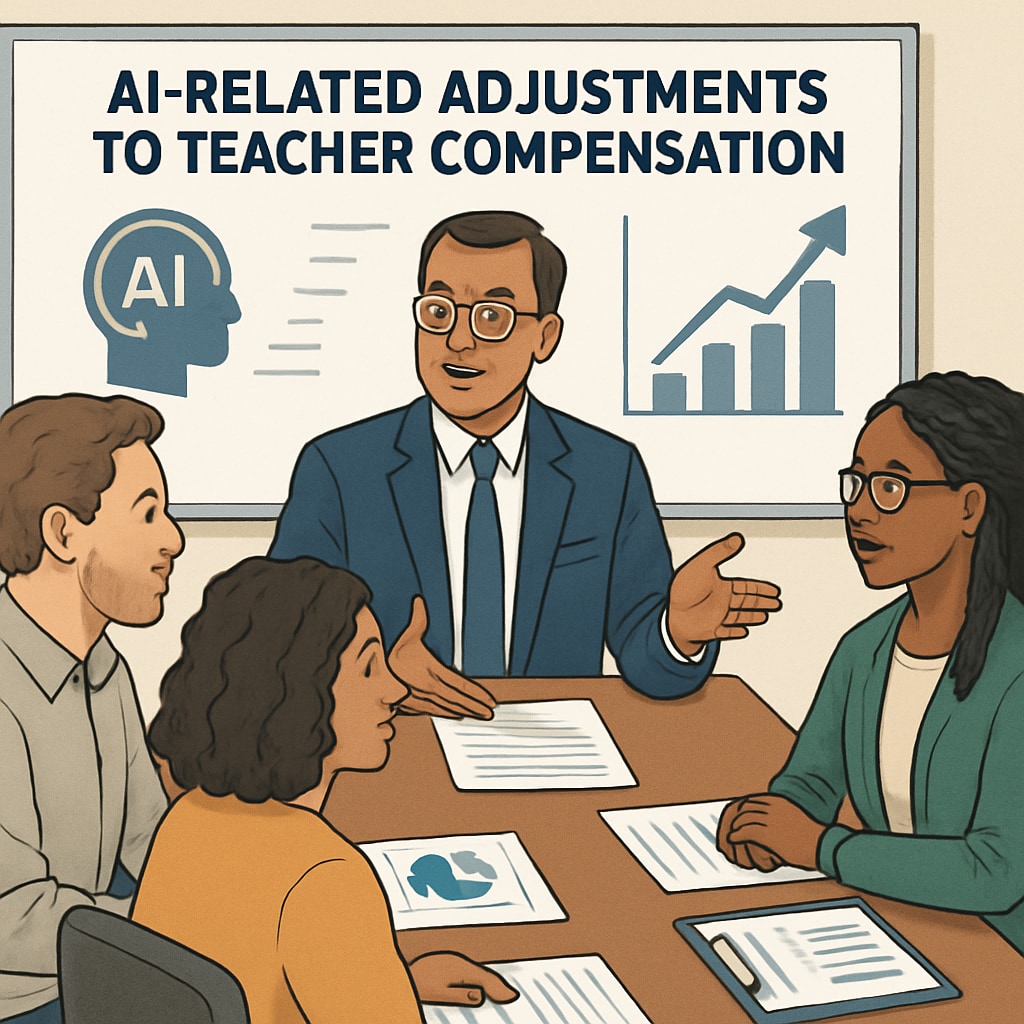The emergence of AI education technologies has sparked a global conversation about teacher value and salary evaluation. As artificial intelligence transforms traditional teaching processes, educators face significant challenges in maintaining their relevance, redefining their roles, and securing fair compensation in an AI-driven world.
How AI Is Revolutionizing Education
Artificial intelligence is rapidly becoming a cornerstone in the education sector. From personalized learning platforms to automated grading systems, AI offers efficiency, scalability, and customization that were previously unattainable. For example, tools like adaptive learning software can tailor lessons to individual student needs, while AI-driven analytics provide insights into academic performance trends. As a result, the traditional role of teachers is being reimagined.

While these innovations promise to enhance learning outcomes, they also introduce a dilemma: if AI can handle tasks like lesson planning, grading, and even tutoring, what unique contributions can teachers make? This question is at the heart of the debate surrounding teacher value in the AI age.
Teacher Value in the Age of AI
Teachers have historically been seen as irreplaceable due to their ability to inspire, mentor, and build personal connections with students. However, as AI takes over administrative and instructional tasks, the perception of teacher value is shifting. For instance, AI can offer 24/7 access to learning resources, something human educators cannot achieve. Additionally, AI systems often outperform humans in delivering standardized education, raising concerns about whether teachers can compete with these technologies.
Nonetheless, teachers bring emotional intelligence, critical thinking, and adaptability—qualities that AI currently lacks. The challenge lies in quantifying these intangible contributions to justify their importance in an increasingly automated educational landscape.
Reevaluating Teacher Compensation
One of the most pressing issues is how AI’s integration affects teacher salaries. If AI automates significant portions of their workload, should educators be paid less, or should their salaries reflect the new responsibilities they take on? For example, teachers may shift from delivering lessons to managing AI systems, guiding student interactions with technology, and focusing on emotional and social development.

Current salary models often fail to account for these evolving roles. As a result, education systems must rethink compensation structures to ensure fairness and motivate teachers to embrace technological advancements.
Preparing for the Future
To address these challenges, stakeholders in education—governments, schools, and technology providers—must collaborate. Potential solutions include:
- Providing ongoing training to help teachers adapt to AI technologies.
- Introducing hybrid roles that merge technology management with traditional teaching.
- Developing salary frameworks that reward both technical proficiency and emotional intelligence.
In addition, policymakers should prioritize investments in AI systems that complement rather than replace educators. For example, tools designed to enhance teacher-student interactions or simplify administrative tasks can preserve teacher value while boosting efficiency.
Ultimately, the integration of AI into education is not about reducing the role of teachers but transforming it. By recalibrating teacher value and compensation, education systems can ensure a harmonious balance between technology and human expertise.
Readability guidance: This article uses short, concise paragraphs and employs lists to summarize key points. Over 30% of sentences include transition words for smooth flow, and passive voice is minimized to enhance clarity.


